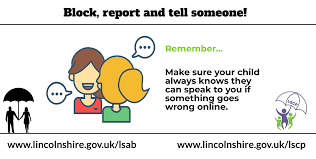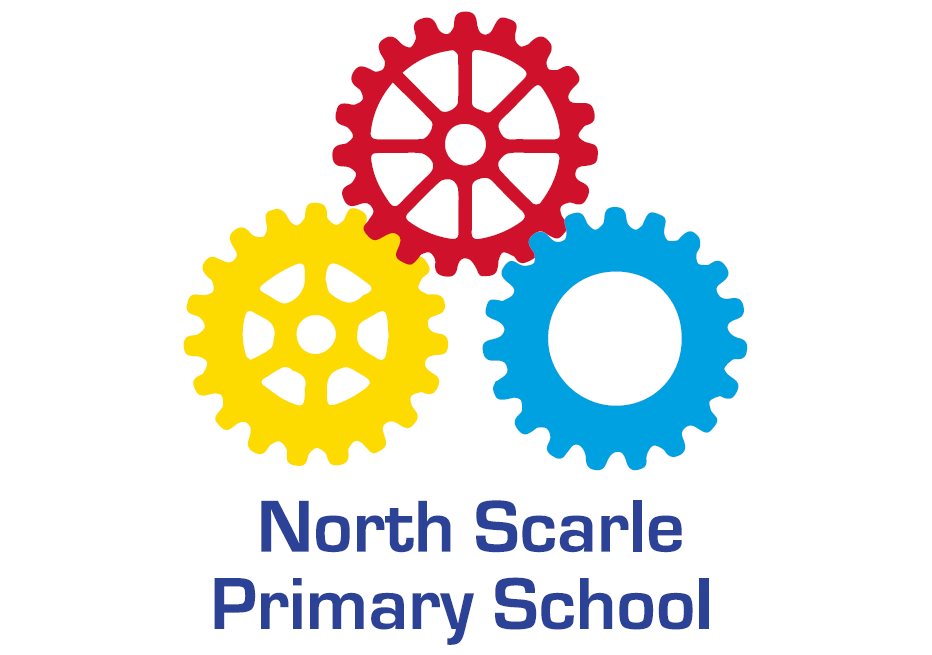Online Safety

On this page we will provide information that we hope will help you manage your child's online safety. We have also added website links that will guide you further.
Click here to find the school's Online Safety Policy
Click here to find a Parental Controls Guide 2025
We take online safety in school incredibly seriously, ensuring that content is carefully filtered before reaching our pupils and that activity is monitored by all staff. We work incredibly closely with the Lincolnshire Stay Safe Partnership to ensure all our information and training is up-to-date and provide families with monthly online newsletters which can be found here.
We have three, Year 5, Junior Online Safety Officers (JOSO).
Our Junior Online Safety Officers have received two training sessions to enable them to become fully fledged JOSOs. In these training sessions, they completed a range of activities, alongside some other schools, to challenge and improve their knowledge of online safety.
As trained JOSOs, they work with us to complete challenges based around online safety, including speaking to their peers through assemblies and class discussions. They will share their experiences with our teachers and governors, discussing what they have been doing in school and what we could do to improve online safety.
Links to further information on Online Safety:-
Updates from our Stay safe Partnership
The information below is shared from our Stay Safe partners and experts in online safety matters. As a mum with a child with a growing interest in social media and phone use, and as a headteacher and DSL, who has seen the impact of easy online access is having on our children, I think the information below is excellent.
There are many negatives to but, there are also many pros to online content and access for our children, but knowing the dangers and how you can help to manage and minimise them is the safest way of giving our children the freedom and independence they seek.
NSPCC Share Aware Parent Booklet:
The internet is an amazing place, so we want to help your child to get the most out of it, and to do that safely. However, we know some parents feel confused by the internet. It's constantly changing, and it can be hard to keep up with the latest apps and trends.
The NSPCC have put together this really simple guide to reassure you, and give you the information and advice you'll need to keep your child safe online. It's all about talking to your child, getting the family involved, and finding out what you can do. The booklet can be accessed in the related document of this page: Online safety, information pack for parents, NSPCC - Stay Safe Partnership – Lincolnshire County Council
Remember Parental Controls are accessible on Smartphones, Broadband, Gaming platforms and social media. Whilst these can not offer complete protection from all online risks consider them the stabilisers of the internet. There are lots of easy to use guides on www.internetmatters.org.uk
Our top tips for managing decives at home:
- No tech in bedrooms (or tech with door open)
Keeping technology from behind closed doors reduces the likelihood they will search for inappropriate content.
- Watch and learn about apps together
Learn about the apps and games they are interested in to better understand how it can be used positively but also to understand the risks and how they manage them.
- Periodically check what they are watching
YouTube and Netflix will show you what has been recently watched. Social media can be a little more difficult to check but encourage them to show you themselves through regular conversations.
- Discuss together and agree boundaries
Keep talking about the good and the bad of being online, and explain why rules are necessary sometimes so they understand it’s about their safety not spoiling their fun.
Snapchat Parental information
The NSPCC reported this month that the cases of online grooming against children had risen by 89% in the past six years with almost half (41%), where a means of communication was known, occurring on Snapchat. Snapchat is a popular app used by young people within Lincolnshire. All social media apps have an age rating of 13+. We would encourage parents to carefully consider which apps are accessible to their children on their devices. When giving your child access to social media apps we would encourage you to utilise the parental controls they have available to help safeguard from potential risks. You can find out more information around Snapchat and setting up parental controls here: Social media Snapchat: guidance for parents and carers - Stay Safe Partnership – Lincolnshire County Council.
There is no silver bullet in terms of safety online and there will always be risks your child could encounter, much like the real world. Therefore we would encourage you to always keep open communication with your child around the apps and games they are using and people they are talking to. Our research has shown that children whose parents have open communication and know what they do online are 37% less likely to experience issues such as online bullying. Our top tips:
• No tech in bedrooms (or tech with door open)
Keeping technology from behind closed doors reduces the likelihood they will search for inappropriate content. It is also safer to charge devices downstairs in terms of home fire safety.
• Watch and learn about apps together
Learn about the apps and games they are interested in to better understand how it can be used positively but also to under the risks and how they manage them.
• Periodically check what they are watching
YouTube and Netflix will show you what has been recently watched. Social media can be a little more difficult to check but encourage them to show you themselves.
• Discuss together and agree boundaries
Keep talking about the good and the bad of being online, and explain why rules are necessary sometimes so they understand it’s about their safety not spoiling their fun.
For more information on setting up parental controls, screen time limits, filter controls and online risks check out www.internetmatter.org.uk
Free Online Safety Q&A events for Parents
Are you a parent who is concerned about what your child may be experiencing online? Would you like to feel more confident in supporting them to stay safe?
A series of free events have been organised giving parents and carers the opportunity to get their questions answered on a raft of online safety issues, including age-appropriate apps, online trends, parental controls, social media, and more.
The online events will be hosted by experts from Lincolnshire County Council’s Stay Safe team, who in the last academic year have delivered hands on workshops to 50,000 children aged between seven and 18 – helping them develop the skills they need to navigate the online world safely.
Two sessions will take place in May online, through Microsoft Teams. Tickets are free but places need to be booked in advance.
· Online Safety Q+A for parents of primary school aged children - 14 May 2025, 6pm to 7.30pm. Book your place https://www.tickettailor.com/events/staysafepartnership/1651088
· Online Safety Q+A for parents of secondary school aged children - 7 May 2025, 6pm to 7.30pm. Book your place. https://www.tickettailor.com/events/staysafepartnership/1651098
